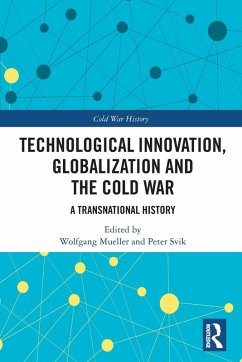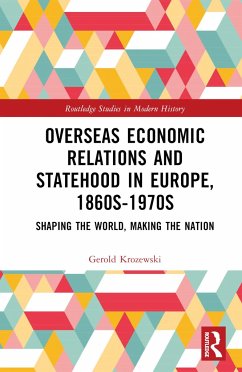
The Globalization of the Cold War
Diplomacy and Local Confrontation, 1975-85
Herausgeber: Guderzo, Max; Bagnato, Bruna
Versandkostenfrei!
Versandfertig in 1-2 Wochen
68,99 €
inkl. MwSt.

PAYBACK Punkte
34 °P sammeln!
This book focuses on the globalisation of the Cold War in the years 1975-85, highlighting the transformation from bipolar US-Soviet competition to global confrontation.














